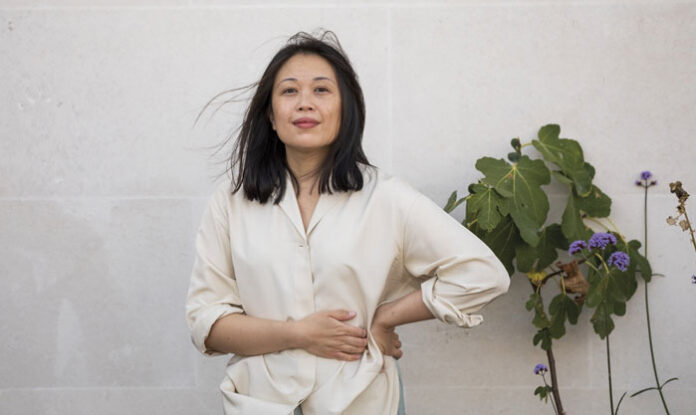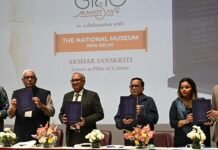UK-based Tilted Axis Press is an independent publisher of contemporary literature translated from a kaleidoscope of languages. Deborah Smith, Simon Collinson, and Sarah Shin formed Tilted Axis Press in 2015 with an Arts Council England grant. English translations of Asian languages were difficult to find in the UK, and so they decided to tackle this problem by founding a press, Kristen Vida Alfaro, publisher and director at Tilted Axis Press, told Indian Printer & Publisher.
Setting up the press was challenging. Funding and publicity were the major roadblocks. “Though we are a non-profit press, it is difficult to make a profit as an independent publisher of translated literature,” Alfaro said.
All its employees are freelancers. Apart from Alfaro, who also works at a different publisher, the others are editors, translators, designers, or booksellers. “Our primary goal is to remain sustainable and to continue publishing vital translated literature,” Alfaro said.
“Many of our translators are heritage speakers and have their personal experiences with the local cultures of a book. We try to work with an editor who speaks the source language at either the line, copy or proofreading edits of a book,” Alfaro said, explaining the unique selling propositions (USPs) of Tilted Axis’ translations that differentiate them from similar works.
Primarily focused on fiction and poetry, Tilted Axis Press publishes 4-8 books a year, dependent largely on funding and capacity, where 95% of the titles are translations. According to Alfaro, they have published translations from 17 languages and are working on 25 different languages, with upcoming translations from Arabic, German, and Isan.
Titled Axis Press is currently working with 25 languages – Korean, Japanese, Indonesian, Thai, Isan, Hindi, Tamil, Bengali, Assamese, Vietnamese, Filipino, Chinese, Swahili, French, English, Eastern Armenian, Dutch, Telugu, Turkish, Arabic, German, Uzbek, Tibetan, Spanish and Brazilian Portuguese.
“Literary translation has the potential to disrupt what we know about literature. Through the translations into English, we are challenging Eurocentric ideas about what makes a good book. We would love to explore translations from across South Asia, including Urdu, Marathi, Malayalam, as well as indigenous languages spoken across the Philippines, such as Bicol or Ilocano,” Alfaro added.
South Asian languages gain prominence
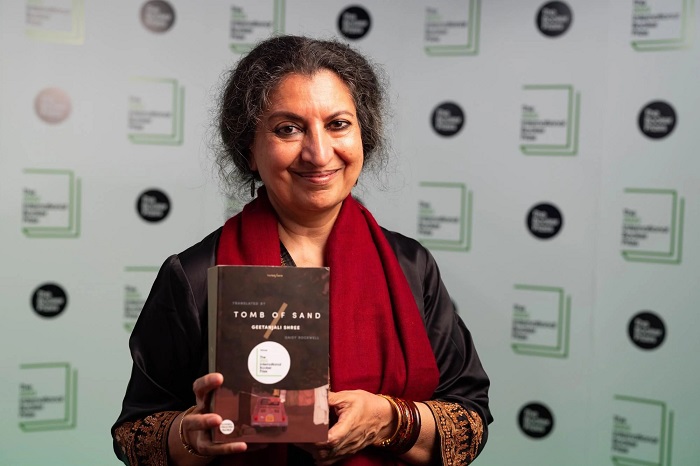
The English translation (Tomb of Sand) of Geetanjali Shree‘s Ret Samadhi published by Tilted Axis Press went on to win the 2022 International Booker Prize. Speaking on the role of literary prizes in the promotion of translated works, Alfaro says, “Prizes such as the International Booker have the potential to influence readers and critics. Major prizes can create an opening for non-European language translations, either to receive more funding or to disrupt expectations and ideas about literary translation.”
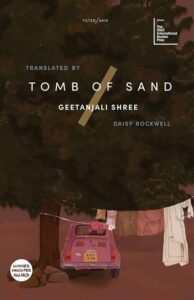
Both Tomb of Sand and Heart Lamp weren’t widely reviewed before the win, Alfaro says, adding Tomb of Sand sold less than 500 copies before making it to the International Booker longlist. Both wins have led to increased sales and drawn attention to South Asian literature.
“I think it’s great that South Asian literature is gaining more prominence. As early publishers of South Asian translations, this is what we hope for. We want people to discover the wide breadth of literature and languages from South Asia,” she added.
According to Alfaro, funding issues as well as a lack of reviews in major newspapers and magazines are major barriers in the way of the internationalization of regional South Asian literature.
On measures to improve the translation publishing ecosystem in South Asia, Alfaro says. “The SALT program has improved the number of South Asian translations by providing funding to support the translation fee. We need more programs like this to support the small presses trying to publish South Asian translations. We need more access to literature through book fairs and programs for translators,” she said.
On 2022-2032 being declared as the international decade of indigenous languages by UNESCO, Alfaro said, “Any attention on indigenous languages is vital as it can create more funding opportunities for publishers and translators.”
Crowdfunding campaigns, new distributors
Tilted Axis Press recently collaborated with Consortium to distribute its titles in North America and major markets outside of the UK and Europe, including the Indian subcontinent. “To be sustainable, we need to grow our presence in markets beyond the UK and Europe. We see a lot of potential in North America and Asia. We’re excited to have more of a presence throughout India and are working with our international sales representatives to establish the most effective ways to enter the market, Alfaro said.
Though there have always been discussions to move to North America, it wasn’t until last year that it became a reality, Alfaro said, adding as a non-profit, they have to think about ways to diversify income. Expanding markets is one way of doing so. “We feel our books will speak to North American readers and various diasporas. North America is the biggest market and we needed to explore our possibilities within it,” she added.
Tilted Axis Press launched a crowdfunding campaign in 2024 and raised nearly £26,000 (£15,616 through Crowdfunder and £10,000 via another donation), Alfaro said. “The funds have contributed to production costs concerning printing, design, and typesetting, as well as our recent distribution move, and the acquisition of new work.”
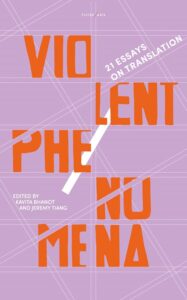
Tilted Axis Press regularly organizes translation workshops and has published an anthology titled Violent Phenomena on the art of translation. Explaining how these initiatives help differentiate the publisher amid tough competition, Alfaro said, “I think it demonstrates how committed we are to anti-colonial publishing. Everyone at Tilted Axis is from the global majority. We are a part of multiple diasporic communities across the UK and the US, and we grew up with multiple languages around us. Our ideas about translation and our approach to language must reflect our actions, and I think that Violent Phenomena and our creative translation workshops are part of this.”
On commonly encountered perceptions of literature translated into English among the global reading audience, Alfaro recommends reading Violent Phenomena and getting this perspective first-hand from translators.



